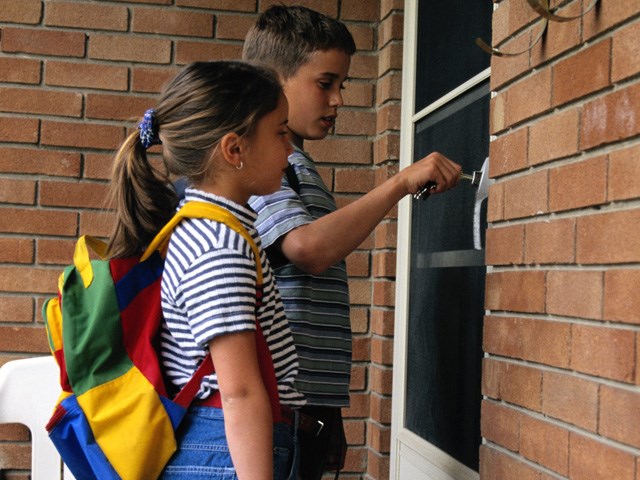
With today’s COVID-19 situation and the stay at home orders, we find working parents strapped with the additional stress of schools running half-time and children home alone. Today’s children are much like the latchkey children of yesterday. Decades ago, for families where both parents worked, children who came home after school without a parent there to supervise them, these children had to use a key to unlock the latch or lock on their door, let themselves into their home and take care of the house until the parents were off work. Our stay at home/home-schooling children are the latchkey children of yesterday. And with the proper frame of mind, both the parents can rest assured their children will be fine and their children will thrive.
Director and star Zach Braff and his brother Adam wrote and published the screenplay, “Wish I Was Here.” In this screenplay on homeschooling, the father figure said, “What do we do? We move forward; its the only direction God gives us.” Moving forward can mean more than just surviving. What is means is, that in order to thrive, we parents must be willing to teach our children new skills and delegate new responsibilities to them; and sometimes at a younger age then when we were taught by our parents. Still, these are only life skills: skills of daily living that our children will need to acquire in order to be successful adults. The old terminology for studying these skills was Home Economics, now Family and Consumer Sciences.
The field of study almost but vanished from the public school system in many states with the onset of the computer era which transformed our society into a faster pace of life. Many families transitioned to purchasing carry-out restaurant meals for dinner at home. Now with the stay-at-home orders, many families are having to relearn the skills their grandparents lived by. In addition, with schools running half-time or only remotely, parents are either acting as home-school monitors or are “policing screen time while working.”
A child, home alone, needs to be inspired to help keep the house clean, cook meals or prepare their own healthy snacks, take the garbage out, do their school lessons, have time for playing, pick up their toys after playing and take proper procedures in case of any mishaps that may occur in their homes while parents are away. These were the expectations when the term latchkey children was coined in 1942.
Rewards for these additional responsibilities will help your child to rise to new expectations. For older children, rewards could be the privilege of staying up late one night or perhaps the reward of planning a party or get-together with cousins. Likewise, chores not done could come with a privilege taken away. Positive verbals: “good job,” and, “I love the way you are helping with …” are the most important rewards.
With the stay-home orders, many educators and craftspeople are going to virtual classrooms which have interactive links. For an example of a virtual classroom, look at Carol’s Light, ABN which is beginning to offer home economics lessons that teachers and students can access through their virtual classroom.
Many families often eat out because their parents did not teach the cooking skills they needed. Sewing has almost disappeared with the exception of sewing quilts as a hobby. Today’s parents were raised by mothers and grandmothers who were good seamstresses, but neither had the time or patience to teach their children to sew. So we are starting to see the old home economics classes return and now available remotely to meet the needs of our Stay-Home citizens.
Virtual classrooms are fun and entertaining, allowing families to thrive as we move forward, and thrive “… it’s the only direction God gives us.”

